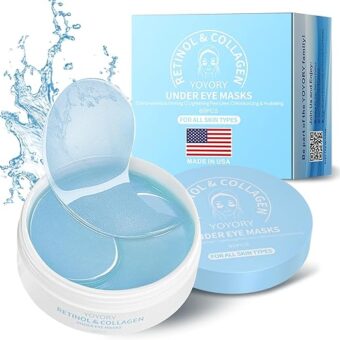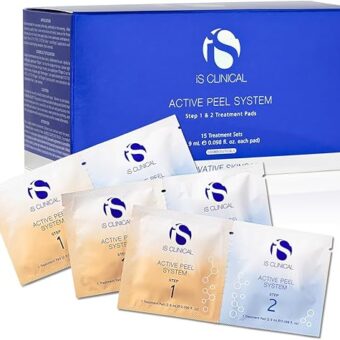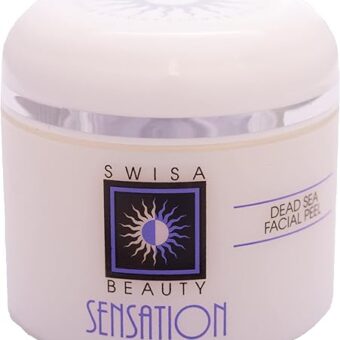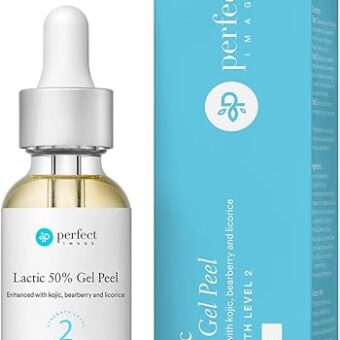To know how to treat hidden acne completely and prevent it from recurring, you need to understand what hidden acne is and what causes it.
What is hidden acne?
Hidden acne is a type of non-inflammatory acne that lies deep under the skin and usually does not cause pain or swelling but makes the skin surface uneven and rough. Hidden acne can appear in many areas of the face, such as the forehead, chin, and cheeks, and is especially common in people with oily skin. Although not as serious as inflammatory acne or cystic acne, hidden acne, if not treated properly, can still cause trouble, making the skin ugly and uncomfortable.

Causes of Hidden Acne
Clogged pores: Clogged pores are caused by dead cells, sebum, and dirt, which are the main causes of hidden acne. When pores are clogged, bacteria can grow and lead to the formation of acne under the skin.
Hormonal disorders: Hormonal changes, especially during periods such as puberty, menstruation, or pregnancy, can stimulate the sebaceous glands to work more vigorously, increasing the risk of clogged pores and causing acne.
Improper skin care: Not cleaning the skin thoroughly, using unsuitable cosmetic products, or abusing makeup products can also clog pores and cause hidden acne.
Environmental factors: Environmental pollution, dust, and toxic substances in the air are also factors that contribute to clogged pores and increase the possibility of hidden acne formation.
Diet: A diet high in dairy products (bread, cheese) or greasy, spicy foods can also cause hidden acne.
How to treat hidden acne
1. Cleanse the skin properly
Cleaning the skin every day is a basic but crucial step in treating hidden acne. You need to clean your skin twice a day in the morning and evening to remove dirt, excess oil, and impurities that accumulate on the skin.
Use a gentle cleanser: Choose a mild cleanser that does not contain alcohol or harsh detergents to avoid unbalancing the skin’s pH. Cleansers containing ingredients such as salicylic acid or benzoyl peroxide can help deeply clean pores, reducing the risk of acne.
Remove makeup properly: Even if you don’t wear makeup, you should still use makeup remover or cleansing oil at night to completely remove dirt and excess oil accumulated on the skin.

2. Protect your skin
Skin that is regularly exposed to UV rays is easily damaged, making acne worse. Therefore, when you go out, you should take measures to protect your skin, avoid direct exposure to sunlight, and protect it by wearing a mask, hat, sunscreen, etc.
3. Moisturize your skin
A well-hydrated skin will have better elasticity, and the skin barrier will also be stronger. You can moisturize your skin with masks and moisturizers.
4. Exfoliate regularly.
Exfoliation helps remove dead skin cells, preventing clogged pores. You should exfoliate regularly, 1-2 times per week, to help clear pores.
Physical exfoliation: You can use products containing small particles to exfoliate. However, for acne-prone skin, physical exfoliation needs to be gentle to avoid damaging the skin.
Chemical exfoliation: Products containing AHA (Alpha Hydroxy Acid) and BHA (Beta Hydroxy Acid) are good choices for chemical exfoliation. BHA can penetrate deep into pores and remove excess oil, while AHA helps smooth the skin surface.
5. Use products containing acne-fighting active ingredients.
Using skin care products containing specialized ingredients to help control and treat hidden acne is an important step in the treatment process.
Retinoid:This is a derivative of vitamin A, which can promote skin regeneration, unclog pores, and reduce the formation of hidden acne. However, retinoids can make the skin more sensitive to sunlight, so you should use sunscreen regularly when using products containing retinoids.
Salicylic acid: This ingredient can penetrate deep into the pores, clean sebum, and effectively treat hidden acne.

Benzoyl peroxide:Benzoyl peroxide is an ingredient that has antibacterial effects, helps reduce inflammation, and prevents the growth of acne-causing bacteria.
6. Use a clay mask
Clay masks are a good choice to help deeply clean pores and absorb excess oil and impurities. Using a clay mask 1-2 times a week will help clear the skin and reduce hidden acne.
7. Steam your face
Steaming your face is an effective method to open pores, helping to remove dirt and excess oil accumulated deep inside. You can steam your face 1-2 times a week using warm water and herbs such as perilla leaves, green tea, tea tree oil, or chamomile. After steaming, remember to wipe your skin clean with a soft towel and continue with other skincare steps.

8. Lifestyle and diet
To keep your skin healthy and free of acne, you should develop healthy, scientific living habits. You should increase your intake of foods rich in vitamins, minerals, and antioxidants, such as green vegetables, fruits, nuts, and fatty fish. In particular, drink enough water every day to maintain skin moisture and eliminate toxins.
Limit staying up late; you should get enough sleep 7-8 hours every night, and find ways to reduce stress through activities such as yoga, meditation, or light exercise to help balance your body and skin.
9. Intensive treatment at a spa or dermatologist
If your hidden acne persists and shows no signs of improvement, you may consider visiting a reputable spa or dermatologist for advice and intensive treatment. Some treatments that can be applied include:
Chemical peeling: Using chemical solutions to remove dead skin and stimulate new skin regeneration.
Blue light therapy: This method helps kill bacteria and reduce inflammation, making it very useful in treating hidden acne and inflammatory acne.
Acne extraction: This is a mechanical method to remove acne from pores, but it needs to be performed by a specialist to avoid damaging the skin.
10. Should you pop hidden acne at home?
Should you pop hidden acne at home? You should not pop hidden acne at home. Pop acne can push oil and bacteria deeper into the skin, damage the skin, cause inflammation, leave scars, and spread the infection to surrounding skin areas.

Conclusion
Treating hidden acne cannot be completed overnight but requires patience and proper skin care. Be persistent in cleansing, moisturizing, and maintaining a healthy diet and lifestyle. If your acne does not improve, you should see a dermatologist for advice and appropriate treatment.









